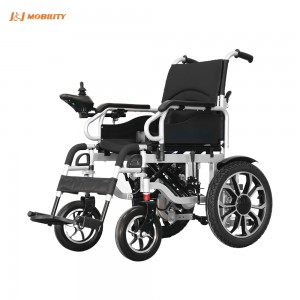How to Get an Electric Wheelchair Through Insurance
Electric wheelchairs are essential for individuals with mobility impairments, enhancing independence and ease of movement. However, their cost can be high, and not everyone qualifies for insurance coverage. Here’s a guide on how to obtain one.
1. Establish Medical Necessity
To qualify for an electric wheelchair, you must demonstrate medical necessity. This involves having a condition that severely limits your ability to walk. Qualifying conditions include:
Spinal cord injuries
Multiple sclerosis
Arthritis
Cerebral palsy
Muscular dystrophy
Parkinson’s disease
Stroke
Amputation
Additionally, conditions causing fatigue or pain while walking, such as COPD or heart disease, may also qualify.
2. Evaluation by a Healthcare Professional
After establishing medical necessity, you need an evaluation from a healthcare professional. This assessment will gauge your mobility needs and whether an electric wheelchair is appropriate. The evaluation typically includes:
A physical examination
A review of your medical history
An assessment of daily living activities
The professional will also consider your living environment and transportation needs, possibly suggesting other mobility aids if more suitable.
3. Understand Insurance Coverage
Once you have medical necessity and an evaluation, check if your insurance covers the wheelchair. Medicare, Medicaid, and private plans may cover costs if deemed necessary. To qualify for coverage, you usually need to:
Obtain a prescription from a healthcare professional
Meet your insurance plan’s medical necessity guidelines
Provide medical documentation (records or test results)
Demonstrate the ability to operate the wheelchair, possibly through a training certificate
Insurance may require you to use specific suppliers or obtain prior authorization.
4. Prepare for Out-of-Pocket Costs
Even with insurance, expect out-of-pocket costs like deductibles and co-payments. The total will depend on your plan and the wheelchair selected. For those without coverage, electric wheelchairs can be quite costly, ranging from thousands to tens of thousands of dollars.
5. Explore Financial Assistance Resources
If insurance doesn’t cover the costs, look for financial assistance options. Some organizations offer loans or financial aid, while certain states may provide free or low-cost wheelchairs to eligible individuals.
Conclusion
Electric wheelchairs can greatly improve the quality of life for those with mobility challenges. To obtain one through insurance, establish medical necessity, undergo a professional evaluation, and meet your insurance’s requirements. While there may be out-of-pocket costs, various resources are available to help you secure the mobility aid you need.
Post time: Oct-21-2024


